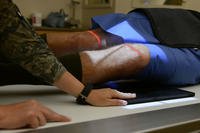Pursuing education after military service should be done with considerable thought and evaluation. While it's wonderful that the Forever GI Bill affords veterans the ability to advance their knowledge and education, it can also be a tempting diversion from facing the realities of the civilian job search.
Post-secondary education is a requirement in many civilian careers. Even a bachelor's degree is needed for careers in industries where the market is more competitive, academic learning is seen as an advantage, and companies insist their employees have completed college or university.
Advanced degrees in business, marketing or economics/finance are helpful to enter the private sector above entry level, making master's degrees attractive to veterans after military duty.
Building Your Brand Before You Graduate
For many years, I have worked closely with the Student Veterans of America (SVA) organization, a group that advocates, supports and provides resources to veterans at colleges and universities across the U.S. I have taught my personal branding programs to hundreds of student veterans through SVA events and forums and seen firsthand some of the challenges facing student veterans.
Here are my favorite tips for student veterans to get career-ready before graduation:
1. Start thinking about graduation today
Wherever you are in your education -- freshman in an undergraduate program, applying to graduate schools or defending your Ph.D. thesis -- think about how you envision your career after school. Your time in the military earned you tremendous credibility, gave you skills and experience and taught you traits unmatched in the civilian sector. Now, you're adding education and more skills to your resume. Where are you headed with all of this effort and work? What is the path you'll pursue after graduation?
2. Set goals
As you move through your academic career, set short- and long-term goals for your career. Will this education allow you to enter your civilian career at a higher position? If so, what is the step after that one? If you are pursuing education to learn skills and tools to equip you to perform in a new industry, how will you leverage this education in the first five years after graduation?
3. Build relationships
The men and women studying alongside you will likely also land in meaningful careers. Start building your network now so that you can support, refer and endorse each other later. Networking is a critical part of any career, and particularly if you're spending time in school after leaving the military, your network will be vital to ensuring you have guidance and tools to succeed.
4. Be careful online
Social media is a large part of the academic community today. From study groups to meet-ups to online chat rooms, being active on various platforms keeps you connected and engaged with your peers and instructors. That said, use caution when posting online. Consider the public nature of social media and how perceptions (and misperceptions) get formed with every keystroke.
5. Position yourself authentically
As you form friendships, groups, teams and connections, remind yourself that your past is likely different from your peers, and that's OK. While they may have taken the more traditional path to education, and you chose the military, you're all right here, together. As an older student (likely), you might feel that bonding with other students is more challenging. Resist the urge to pretend to be someone you're not. Instead, show your passions, vulnerabilities and goals to those around you so they can learn who you really are.
6. Ask for help
While you might still be uncomfortable asking for guidance, assistance and help, as a student veteran, it's an important skill to develop. Reach out to counselors, advisers, other students and other veterans when you get stuck or need support. This is a natural part of the academic experience, and no one does this all alone.
Moving through your career, you'll rely on many skills and qualities you gained in the military. Use those assets to make you a stronger student and, later, a viable candidate for a career that feels meaningful and purposeful.
Find the Right Veteran Job
Whether you want to polish your resume, find veteran job fairs in your area or connect with employers looking to hire veterans, Military.com can help. Sign up for a free Military.com membership to have job postings, guides and advice, and more delivered directly to your inbox.
















